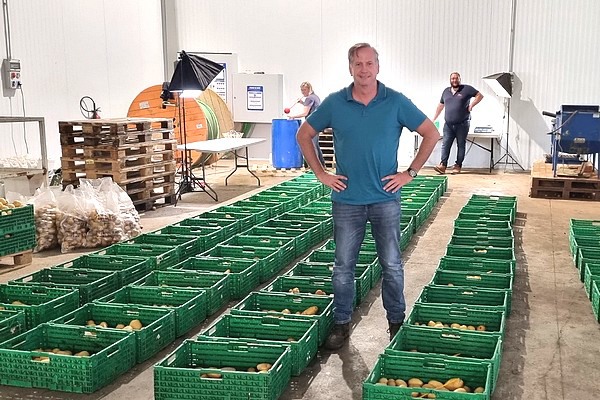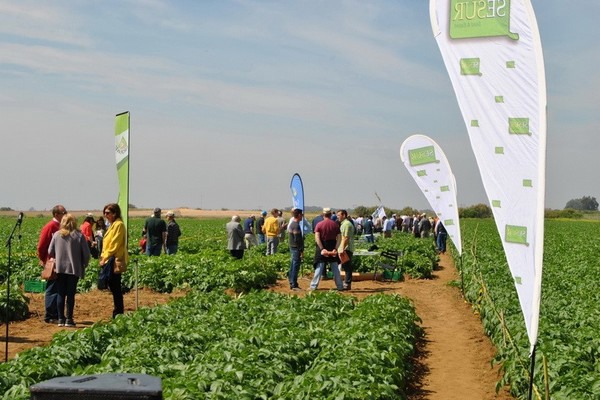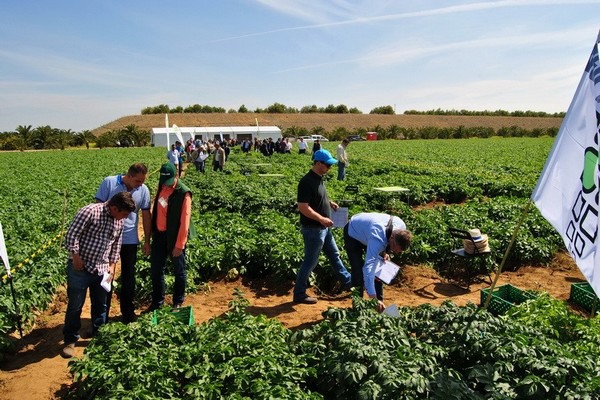Every year, numerous new potato varieties are launched by European breeders operating internationally as well as regionally. From start to finish, the entire breeding process takes about ten years, but only a few finally prevail. As climate change progresses, heat resistance is now one of the key factors determining the potential for new registrations. Extensive variety trials are important here, and these are carried out primarily under extreme growing conditions. Georg Kolmhofer, Managing Director of Sesur, a company based in Seville in southern Spain, gave us an insight into this exciting and, for many, unknown stage of the potato breeding process.
Since its foundation 13 years ago, Sesur has been involved in variety trials in all areas of the variety spectrum. This was introduced by Edmund Wright, former co-partner of Sesur and formerly managing director of the Spanish partner company of MBM, the leading British potato company. Under Mr. Wright's leadership, Sesur developed into a specialist in variety trials, Kolmhofer says looking back.
 © Sesur SLU Austrian-born Georg Kolmhofer is at the helm of Sesur.
© Sesur SLU Austrian-born Georg Kolmhofer is at the helm of Sesur.
Variety trials under identical conditions
There are two types of variety trials, he adds. On the one hand, there is the classic variety trial, in which breeders want to test their new varieties in a Mediterranean climate under uniform conditions. The associated results are usually published in writing. Kolmhofer: "We act here as a purely technical service provider without any commercial interest. That means we do not evaluate the varieties. Only the results are presented in practice, and all growers - regardless of farm size - have the same conditions in the process."
On this occasion, a central field or variety demo day is usually also held at the end of April-beginning of May, which over the years has become a fixed point and important industry meeting for the potato world. On average, the varieties of around 25 breeders are represented on this day and there are usually between 200 and 300 visitors who come to find out about the progress and innovations in the field of breeding work, says Kolmhofer.

Lively exchange at the trial fields in the Seville area.
Test run in another climate zone
On the other hand, a distinction is also made between variety screening, in which breeders are given the opportunity to test future varieties for their Mediterranean suitability. Kolmhofer: "In principle, most breeders are located in northern Europe and, after seven years of tinkering, are usually two to three years away from actual variety approval or market launch. We offer breeders an excellent opportunity to test the varieties and their properties in another climate zone as well, before the rather lengthy and not least expensive variety approval process then takes place." These trials are mostly strictly internal and the evaluation is also principally done by the technicians of the respective breeding companies, he said.
 Potato experts inquire on site about the growth of the individual varieties. There is a desperate need for heat-resistant potatoes.
Potato experts inquire on site about the growth of the individual varieties. There is a desperate need for heat-resistant potatoes.
Contact in the field of variety advice
In both cases, Sesur acts primarily as a technical service provider. "Nevertheless, it is very interesting for us to know the genetics of the various companies years before the new varieties are actually launched on the market. This technical know-how also makes us an interesting partner for packers and retail chains in the area of variety consulting. Over the years, a total of 4,000 varieties and strains have passed through our hands," the report adds.
In general, it can be observed that the area under potatoes for human consumption is tending to decline further in favor of industrial production. Meanwhile, especially in France, the area for seed production is being reduced. Furthermore, new varieties today have to meet very different requirements than in recent decades: "In the past, a high yield per hectare was the main criterion, while fertilizers and sprays were cheap and could be used almost without control. Today, chemical inputs are increasingly restricted. Disease pressure is increasing due to repeated cultivation and, in addition, climatic conditions are becoming more extreme. In breeding, disease resistance, so-called low-impact varieties with a low nitrogen requirement and a high stress resistance to heat and water shortage are thus becoming more and more important. Another breeding goal is to improve the storability of certain varieties in order to be able to use local produce all year round," Kolmhofer concludes.
Images: Sesur SLU
Further Information:
Georg Kolmhofer
SESUR Semilla y Exportación SLU
Apdo. de correos 20.008
41020 Sevilla - Spain
T: +34 954 610012
F: +34 954 303051
[email protected]
www.sesur.net










